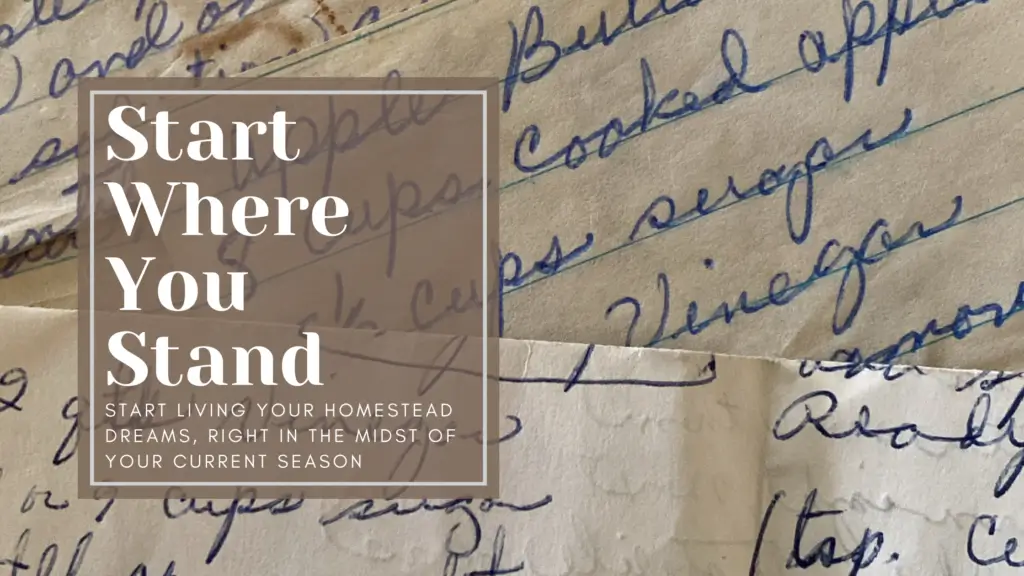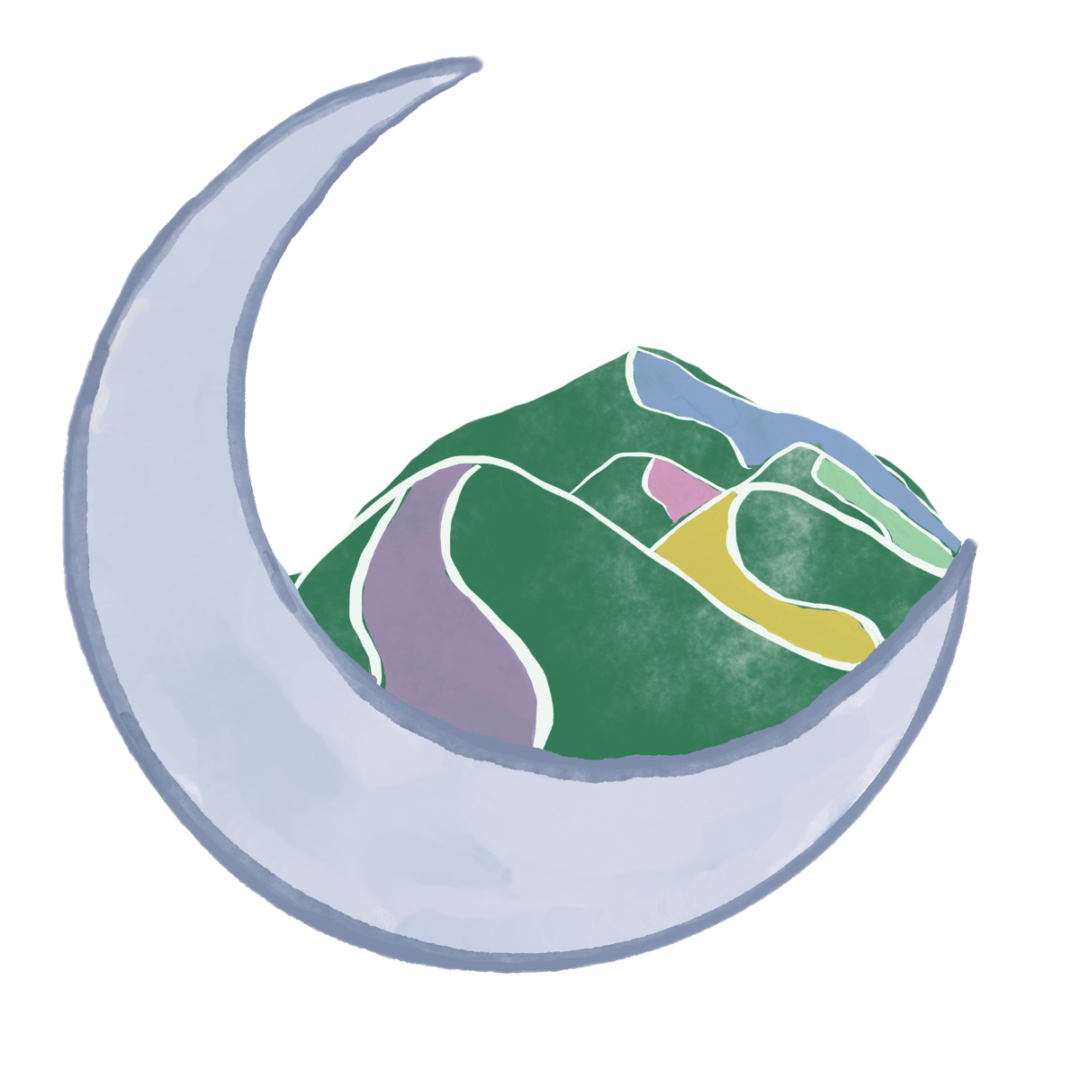Start Where You Are

You can start right where you are. Full stop. You can start exactly where you are right in the midst of the season you are in. It’s so easy to get caught up in the “But I don’t have…” mentality. It’s okay. Let’s talk about the how and all the “but” statements rolling around in your mind. Shall we?
Start where you are.
So you don’t live on acreage, big deal. You can still start where you are. The Compound wasn’t always “The Compound”, you know. Mamaw’s family purchased their homes after renting them from the coal company as company houses. This means that initially they were “farming” on half an acre or some of them even less. They didn’t let that stop them. They had families to feed, and they had no choice but to make it work or watch their families suffer. Since no mother worth her salt will watch her family suffer, they made do.
Was it beautiful? Not at all. Would it have been Instagram worthy? No, it certainly would not. There was no concern that I have found a record of in any family journal that shows they worried about the aesthetic at all. No, they did things like house pigs and goats under their porches and under the floor of their homes, if built on hillsides. Our generations skipped the luxury of having grass lawns and made use of every inch of growing space available to them. These women started where they stood because it was starting there or starve. They started with much less “stuff” than you have access to, in much more dire circumstances. For them, the homestead was the sustenance for their families.
Acreage ownership does not define homesteads, nor does livestock ownership. If you have the space, resources, skill, and time for a milk cow or other livestock, fantastic. If you don’t, you can still homestead. So what defines homesteading? I said this for the first time in writing on Instagram in 2020 and since that time, half the world has used our quote. “To homestead is as simple as deciding to become producers rather than consumers.” Have you made that decision? If so, congratulations, you’ve started where you are standing. You can do it. We’re here to help.
To homestead is as simple as deciding to become producers rather than consumers.
The Appalachian Homestead, 2020
How to start where you are
If you live in a home, you have a kitchen of some sort. Is it a beautiful farmhouse aesthetic kitchen complete with enamel sink and shiplap? Maybe it’s more like ours, an actual farmhouse kitchen complete with hay that gets tracked in and stacks of jars waiting to be washed and refilled? It doesn’t matter, this is now your starting place. The kitchen is the hub of the homestead. Your work may begin in the garden or standing by the cones, but the completion of it will occur in the kitchen.
Starting where you are begins with learning to cook from scratch. It does not matter where the ingredients come from, whether your garden, the store, or a friend. It does not matter at all if you have never cooked. Start with pancakes,they are simple to make and nearly everyone loves them. You can also use pancake batter in the waffle maker to make waffles for any pancake haters in the house. Perhaps you have already started cooking from scratch and you’re ready to take the next step. What is the next step? Pickling or jams and jellies. Later, you will move on to pressure canning. Baby steps. One step at a time, you will live your homestead dreams no matter where you live.
Taking the leap into canning.
The canning police of the internet and the government would have you believe that
people routinely die from consuming home canned foods. I assure you, they don’t. Is it possible? Sure, so is being struck by lightning. Should you be conscious of being clean and using new lids and sterile jars? Absolutely. It’s not rocket surgery though, I promise.
How can you feel safe canning food at home? For starters, use canning recipes that are tried and true which have been shared by someone you trust. There are some doozies out there in the wilds of the interweb, not every canning recipe available via google is in fact safe. So let’s review some practical tips to get you started.
- Skip the canning recipes which add dairy of any kind whether butter, milks, cheeses, etc
- Skip canning recipes which add flours, noodles, breads of any kind, or cornmeal
- Skip recipes that add fats of any kind whether oils or butter
- Skip recipes with added egg
- Remember to use only canning salt, iodized salt will discolor your food and give it an off taste.
- Use purchased vinegars, not homemade. Purchased vinegar acidity has been tested and found to be adequate.
- Wash your produce well
- Keep hands, utensils, and work surfaces clean
- Start with freshly washed, sterilized jars and lids
- Don’t leave out ingredients and don’t add ingredients to canning recipes
These are some basic tips that will get you started and give you peace of mind. Be sure to come back next week for canning recipes. We will be sharing a few of our favorite pickle, jelly, and jam recipes to help you get started. You can do this, we are here to help.
For more recipes from a trusted friend be sure to visit
http://Thehopewellhomestead.com our friend Corina
We also offer a pressure canning course here on our website and have a special canning edition of The Compound Club E Magazine coming out with many of our family canning recipes and instructions for canning them.
